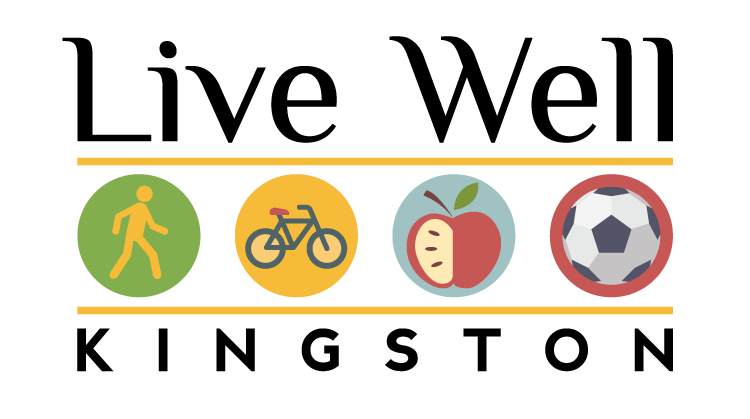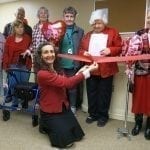 When Marge Gagnon began working with the residents of Kingston’s affordable senior housing, she was amazed to learn that 80 percent of them had no Internet access. “Most adults in our focus group had never even heard the phrase ‘Google it’,” says Gagnon, who leads Live Well Kingston’s Age Well focus team.
When Marge Gagnon began working with the residents of Kingston’s affordable senior housing, she was amazed to learn that 80 percent of them had no Internet access. “Most adults in our focus group had never even heard the phrase ‘Google it’,” says Gagnon, who leads Live Well Kingston’s Age Well focus team.
Many of us take the Internet—and everything it connects us to on a daily basis—for granted. But the Age Well focus team quickly realized that many seniors in the community were lacking web access to local news and announcement, contact with faraway friends and family, and resources for health care and education.
So they set out to change that, starting at the Governor Clinton senior residence. First, two computers—donated by GE Elfun Computer Rehab—were set up in the building’s common area. Then, the commission had to teach the seniors how to use them.
They advertised a computer club for the residents, spearheaded by site manager Francesca Ortolano, and recruited two high-school students to serve as volunteer tutors. And over the last few months, eight seniors have completed the training and are now able to go online unassisted.
Interest has spread, too. “At first, all of these seniors were saying, ‘What do I need the Internet for?’” says Gagnon. “Now they realize they can talk to their grandchildren, or visit their home town, or look up words they don’t know.”
In one meeting with the residents, she remembers, she used the word “cyberspace”— which, unsurprisingly, no one understood. One woman who’d completed the computer training volunteered to look it up, and proudly read the definition off the screen a few seconds later.
In another meeting, she recalls a 94-year-old who stubbornly started out by saying, “I don’t do computers.” As he listened to the potential benefits, though, he grew curious. “Suddenly he perks up and says, ‘You mean to tell me I could visit the seven wonders of the world?’” Gagnon says. “The next time I saw him, I had downloaded information and pictures from the seven wonders of the world to show him, and he was completely blown away.”
The seniors who complete the computer training are also able to socialize online—several of them are on Facebook—and the commission is also looking into ways they can safely and securely access portals for health-care and government assistance.
In addition to the Internet-access program, Live Well Kingston is also hoping to bring community-level programming into community rooms at senior residences via live-streaming video, broadcast through the existing computers or televisions.
“Programs like the Lunch and Learn sessions run by the Ulster County Office of Aging might get around 50 people in attendance,” says Gagnon. “But through this project, we could add the folks who can’t get there either because space is limited or they have physical or logistical limitations, and we can reach a lot more people.”
The Age Well team is also hoping to expand its computer program with more computers at other senior residences throughout the city, and hopes to recruit more high-school volunteers to run training programs during the 2017-2018 school year. “It’s been really rewarding for the seniors and for the students,” says Gagnon, “and it’s really helping to break down barriers between different ages and cultures.”



